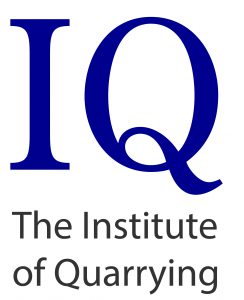May 16, 2019, by Postgraduate Placements Nottingham
Building skills at the Institute of Quarrying
This week we hear from Sarah Fry at the Institute of Quarrying (IQ) about her experience of hosting a PPN placement student.
 The Institute of Quarrying (IQ) is the professional membership body for people working in the quarrying and mineral extractive industries. The Nottingham-based organisation has more than 5,000 members around the world. It aims to be the global leader in standards and to help the sector drive innovation and operational best practice.
The Institute of Quarrying (IQ) is the professional membership body for people working in the quarrying and mineral extractive industries. The Nottingham-based organisation has more than 5,000 members around the world. It aims to be the global leader in standards and to help the sector drive innovation and operational best practice.
IQ publishes a series of detailed textbooks which support these aims, focusing on different on-site working processes. The books serve as core course texts for students studying at the University of Derby’s Centre for Mineral Products. A number of the books required updating, which was a major project for a small in-house communications team to undertake.
“We couldn’t see how we could do this project in-house,” explained Sarah Fry, head of membership and marketing at IQ. “Giving this the proper attention that the project needed would have meant many other day-to-day activities not being done and, in all honesty, we probably didn’t have the right skills either.”
“The answer came to us through the University of Nottingham postgraduate placement programme. As a professional body we champion the development of skills and career opportunities through work-based projects. This was a perfect way for us to demonstrate to our industry our own commitment to these values by offering an editor’s role as a postgraduate placement.”
“The University of Nottingham’s PPN postgraduate placements team guided us through the process and provided us with a short list of candidates. I am sure that all of the candidates would have done a great job, but we felt that Sulekha Said had the right blend of skills and character to fit in with us.”
IQ’s education and training team has overall responsibility for the textbooks. Sulekha joined this team and worked with them to manage the project to completion. As part of the support she was given to do her job, Sulekha was able to get out on site to see first-hand the nature of the content she was editing. Whilst the technical material in the book had already been proof-read, giving Sulekha that real-life understanding of the material she was editing proved to be invaluable.
“Sulekha was really able to step into the shoes of those that would be reading and learning from the book so she made sure that complex, technical material could be easily digested and comprehended.”
The other real benefit of the programme was its flexible working pattern. That meant that Sulekha’s time in the office could be used effectively to focus on the tasks to complete the project.
 Sarah adds, “Our experience with the University of Nottingham postgraduate placement programme has been excellent. As an organisation, we’ve been able to quickly progress a project that adds value to us and our members. In the process, we’d like to think that we were able to give Sulekha a project that gave her meaningful experience to showcase her skills as she progresses her career.”
Sarah adds, “Our experience with the University of Nottingham postgraduate placement programme has been excellent. As an organisation, we’ve been able to quickly progress a project that adds value to us and our members. In the process, we’d like to think that we were able to give Sulekha a project that gave her meaningful experience to showcase her skills as she progresses her career.”
“I’d certainly recommend this programme to other organisations. There’s clearly an altruistic benefit in that you’ll be giving someone a possible start on their future career, but we also really valued having someone fresh come into the organisation that brings a new perspective on what you’re doing.”
“It’s also a great opportunity for students as well. You get to work as part of a team, build skills and gain greater understanding about what you might want from your future job roles. It really is a win-win situation.”
If you are a company interested in hosting a postgraduate placement student please visit our webpage for more information.
No comments yet, fill out a comment to be the first

Leave a Reply